News

Karandikar Lab finds that disease-suppressive CD8+ T cells influence dendritic cells in experimental autoimmune encephalomyelitis
Monday, September 15, 2025
Nitin Karandikar, MD, PhD’s research laboratory focuses on the immune processes that underlie the pathogenesis of multiple sclerosis, which is an immune-mediated demyelinating disease of the central nervous system (CNS). His research group was the first to show the unexpected finding that CD8+ T cells targeted toward CNS antigens can suppress disease activity and could potentially be used as a therapeutic approach.
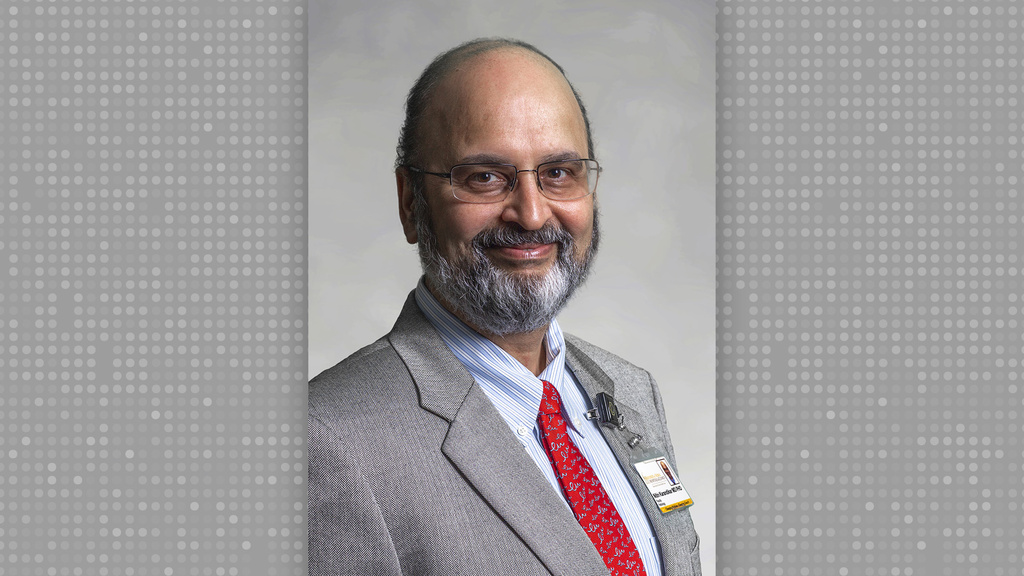
Nitin Karandikar to Serve as Enterprise Chief Strategy Officer While Continuing as Pathology Chair and DEO
Tuesday, June 17, 2025
Nitin Karandikar, MD, PhD, has been named the enterprise chief strategy officer for University of Iowa Health Care, expanding his executive leadership responsibilities while he continues as professor and chair of the Department of Pathology.
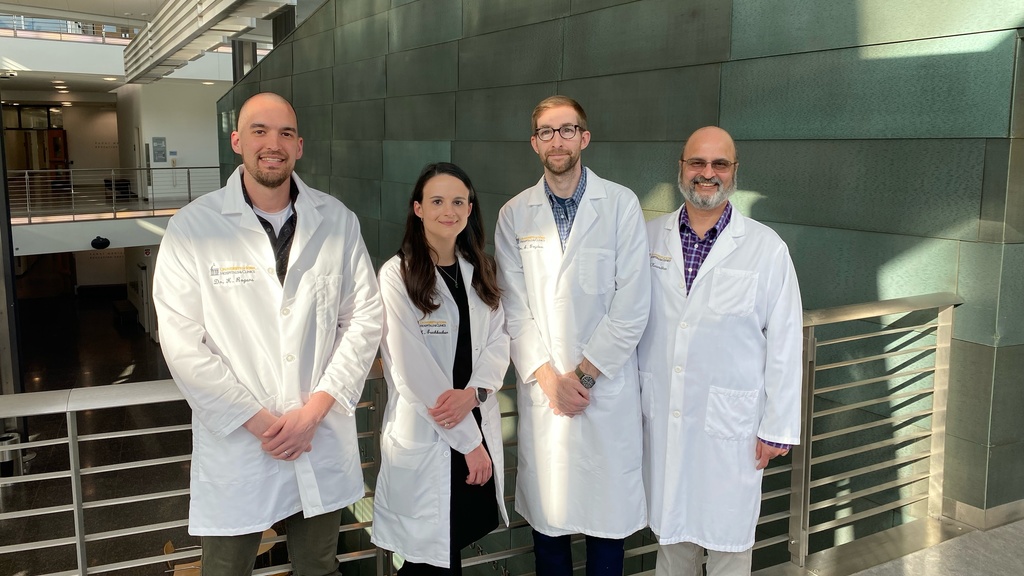
Dr. Kai Rogers Secures Best Abstract Award from the American Society for Apheresis
Wednesday, February 28, 2024
Dr. Kai Rogers received the Best Abstract Award from the American Society for Apheresis (ASFA) for his abstract titled "A Murine Model of Extracorporeal Photopheresis as a Targeted Immunotherapy for Multiple Sclerosis," co-authored with Drs. Kathryn Eschbacher, Alexander Boyden, and Nitin Karandikar.
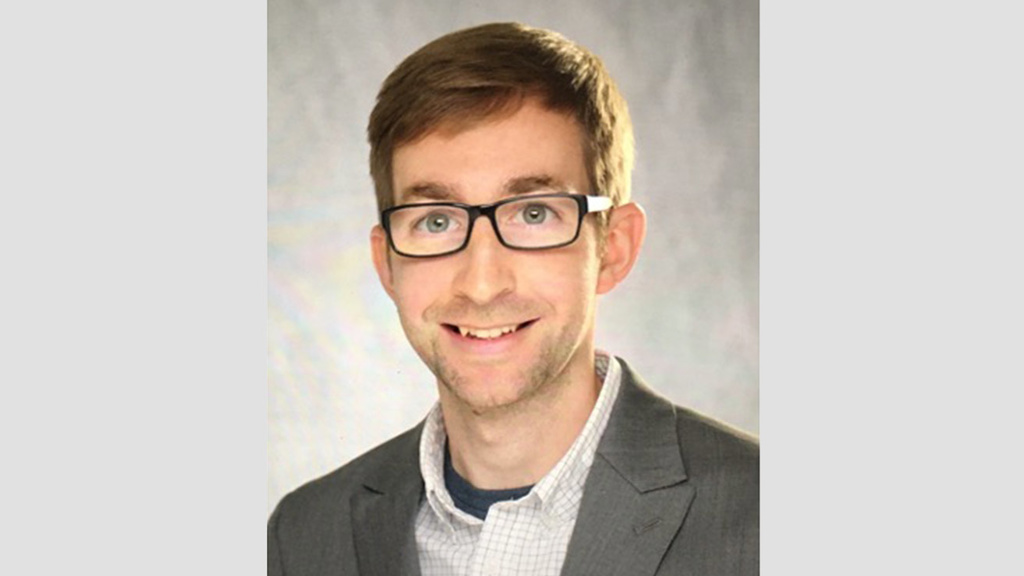
Dr. Alexander Boyden receives a one-year research grant from the National Multiple Sclerosis Society investigating the role of Epstein Barr Virus-like murine viral infection on the induction of multiple sclerosis
Wednesday, October 11, 2023
Dr. Alexander Boyden received a one-year RFA research grant award from the National MS Society entitled “Impact of gamma herpesvirus infection on required B cell:CD4 T cell interactions in a novel B cell-dependent, antibody-independent EAE model”.

Dr. Alexander Boyden receives a five-year R01 research grant from the National Institutes of Health investigating B cell:CD4 T cell interactions in multiple sclerosis
Tuesday, August 22, 2023
Dr. Alexander Boyden received a five-year NIH R01 award entitled “Pathogenic B cell:CD4 T Cell Interactions in a Novel B Cell-dependent EAE Mouse Model of Multiple Sclerosis” from the National Institute of Allergy and Infectious Disease (NIAID).
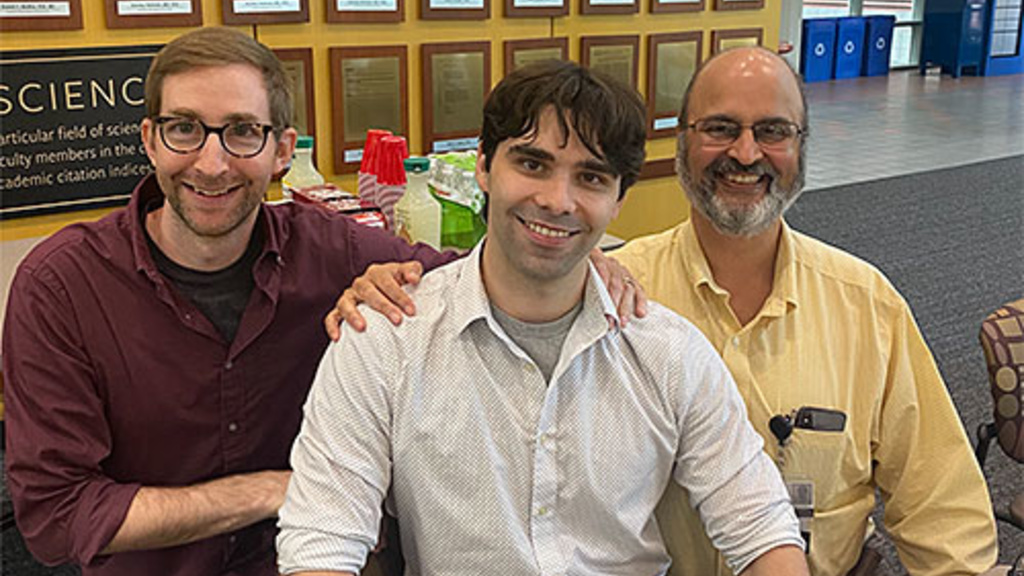
Connor Wilhelm successfully defends and publishes his M.S. Thesis
Thursday, August 10, 2023
Connor Wilhelm completed the Pathology M.S. program by successfully defending his thesis on June 30th, 2023. He performed his thesis work in the laboratory of Dr. Nitin Karandikar, with additional mentorship from Dr. Alexander Boyden in the Karandikar group. Drs. Ashutosh Mangalam and Scott Lieberman also served on his thesis committee.

Dr. Alexander Boyden wins American Association of Immunologists (AAI) Early Career Faculty Award
Friday, March 24, 2023
Dr. Alexander Boyden has been awarded a 2022 American Association of Immunologists (AAI) Early Career Faculty Travel Grant and podium talk for his research entitled “B cell-mediated antigen presentation is required to induce functional pathogenicity of CD4 T cells in a proteolipid protein mouse model of multiple sclerosis” at the American Association of Immunologists annual meeting in Portland, OR on May 6-10, 2022
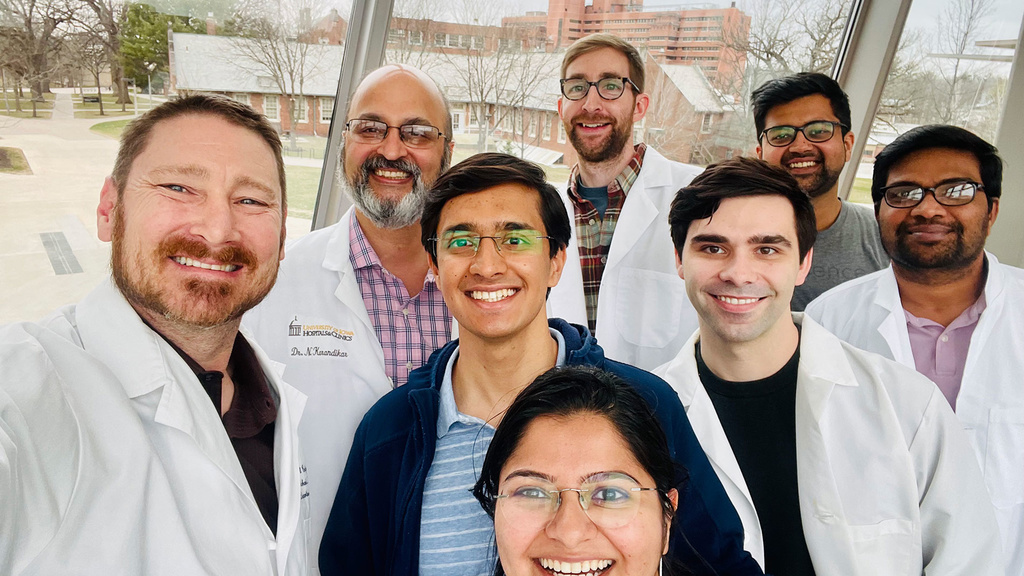
Dr. Nitin Karandikar Receives New VA MERIT CSRD Grant Award
Friday, March 24, 2023
Dr. Nitin Karandikar received another 4-year VA Merit Award, entitled “Effector-Regulator Immune Interactions During Autoimmune Demyelinating Disease.” This competitive award was made under the VA’s CSRD (Clinical Science Research and Development) program, which focuses on clinically relevant translational research.
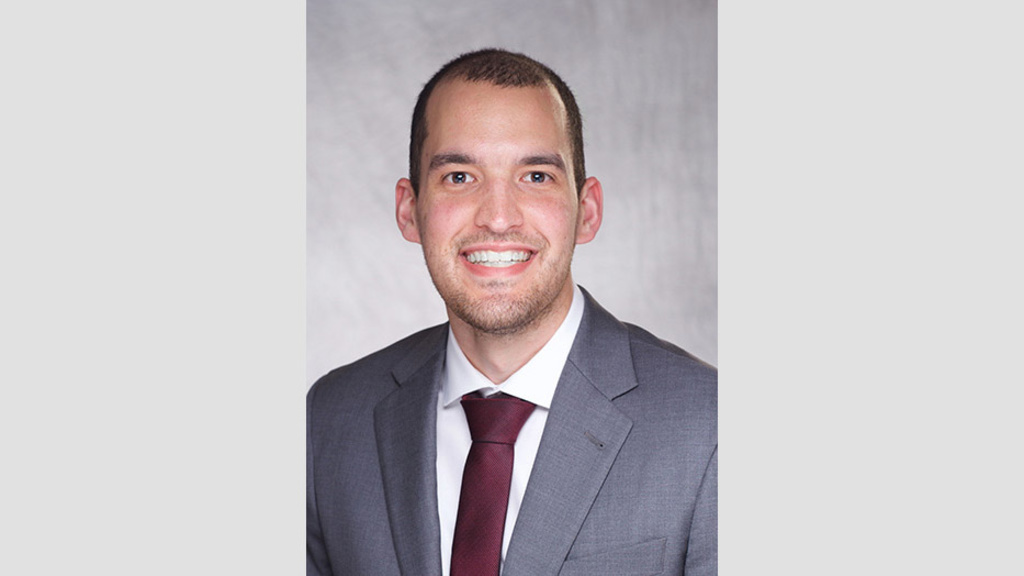
Dr. Kai Rogers receives the "Paul E. Strandjord Young Investigator Grant" from The Academy of Clinical Laboratory Physicians and Scientists
Monday, March 13, 2023
Dr. Kai Rogers, a second-year pathology resident, has been awarded a grant entitled “Exploring functional changes in peripheral T-lymphocyte populations in patients undergoing extracorporeal photopheresis” from The Academy of Clinical Laboratory Physicians and Scientists (ACLPS).
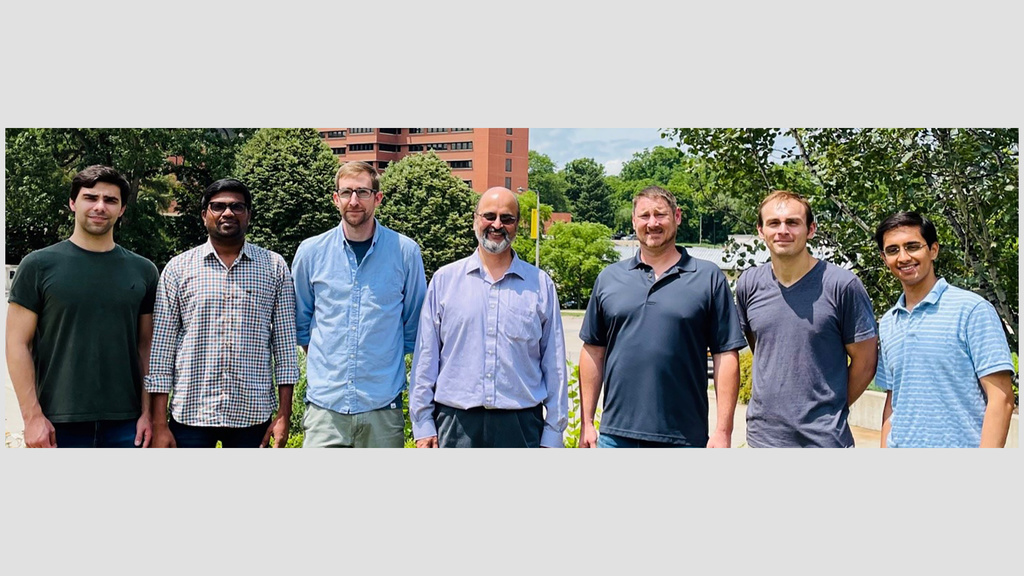
Dr. Nitin Karandikar renews VA MERIT grant and also receives the VA Senior Clinician Scientist Investigator (SCSI) Award
Thursday, July 15, 2021
Dr. Nitin Karandikar successfully renewed his VA Merit Award, entitled “Immunotherapeutic Regulatory CD8 T cells in Autoimmune Demyelinating Disease.” Based on the outstanding score for the renewal application, Dr. Karandikar was also nominated for and received the VA Senior Clinician Scientist Investigator (SCSI) Award. This SCSI Award includes a MERIT award extension for 4 years, amounting to a total eight-year award.
Pagination